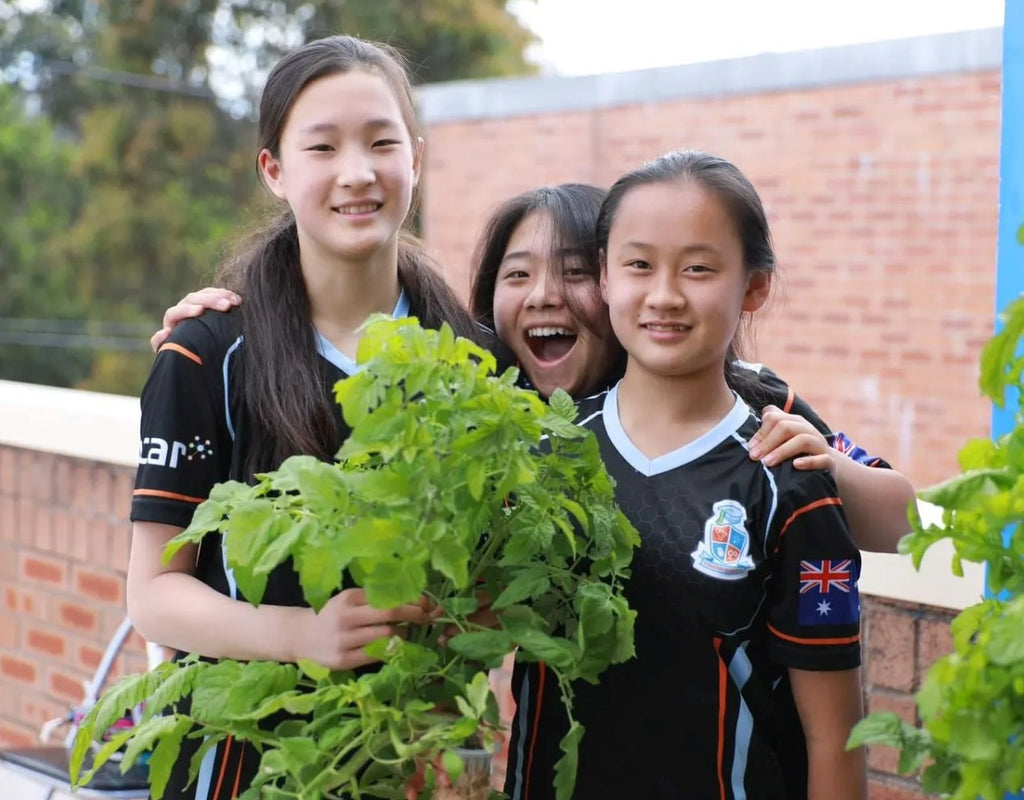
Cultivating Curiosity: Why Teaching Kids About Our Food System Matters 🍅🥦🌶🥬

Greetings, garden gurus and food fanatics! Today, we're off on a tasty adventure to rediscover our food and uncover why it's vital to pass this wisdom down to the next generation. So fasten your seatbelts, snag a snack (freshly plucked, if possible!), and let's dig into why teaching our little ones about food is a deliciously important mission.
Why It Matters
Imagine a world where every child understands not just the names of their favorite fruits and veggies but also how they grow, where they come from, and why they're important. That's the world we're striving for! Educating our kids about our food system isn't just about ensuring they make healthy choices; it's about empowering them to be informed consumers and stewards of the environment.
The Current Challenges
Now, let's talk turkey... or tofu, if you prefer! Our current food system faces a myriad of challenges, from environmental degradation to food insecurity. Kids need to know about these challenges because they're the ones who will inherit the consequences if we don't act now. From climate change affecting crop yields to food deserts where nutritious options are scarce, these are real issues that demand attention.
The Disconnect: From Farm to Supermarket
Picture this: a child walks into a supermarket, marvelling at the colourful array of fruits and veggies neatly stacked on shelves. But do they know where those strawberries came from? Or how those carrots made their way onto the display? Unfortunately, in today's fast-paced world of convenience, many kids are growing up disconnected from the origins of their food. They think it magically appears on supermarket shelves, wrapped in plastic and ready to eat.
The Convenience Conundrum
We live in a society where convenience is king. With everything available at the tap of a screen or the push of a button, it's easy to see why many kids don't question where their food comes from. But herein lies the problem: when we prioritise convenience over connection, we lose touch with the true value of our food and the effort it takes to produce it. By educating our kids about the journey from farm to table, we're not just teaching them about food; we're instilling a sense of gratitude and respect for the Earth.
Enter Airgarden & Aeroponics
But fear not, intrepid readers, for in every challenge lies an opportunity! Cue the superhero music because here come Airgarden and aeroponics to save the day! These innovative growing methods aren't just cool gadgets for your backyard; they're the future of food production. With aeroponics, plants grow in an air with droplets of nutrient rich water environment without soil, using significantly less water and space compared to traditional farming methods. It's like gardening meets science fiction!
Solving Real-World Problems
By introducing kids to alternate growing methods like Airgarden and aeroponics, we're not just teaching them about cool technology; we're showing them practical solutions to real-world problems. These methods offer hope for a more sustainable future where we can produce nutritious food locally, even in urban areas where space is limited. Plus, they're a fun way to get kids excited about gardening and science!
Bringing Families and Communities Together
Now, let's talk about the magic of mealtime. Whether it's gathering around the dinner table with family or hosting a potluck with friends, food has a remarkable way of bringing people together. From sharing recipes passed down through generations to bonding over a shared love of gardening, food is more than just sustenance; it's a catalyst for connection and community.
When we involve our kids in the process of growing, harvesting, and preparing food, we're not just teaching them life skills; we're creating memories that will last a lifetime. Whether it's planting seeds, picking fresh herbs for dinner, or cooking up a storm in the kitchen, these shared experiences strengthen bonds and foster a deeper appreciation for the food we eat and the people we share it with.
Conclusion
By teaching our kids about our food system, we're not just filling their minds; we're nourishing their souls. We're empowering them to make informed choices, fostering a deeper connection to the Earth, and building stronger families and communities in the process. So let's roll up our sleeves, get our hands dirty (literally and figuratively), and sow the seeds of knowledge and appreciation together.
Stay curious, stay connected, and happy Airgardening!







